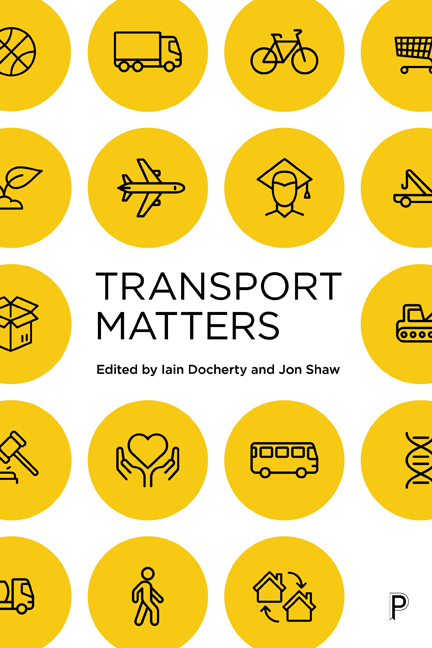Preface and Acknowledgements
Published online by Cambridge University Press: 03 March 2021
Summary
This is the third of our edited books that has focused on transport, travel and mobility in Britain. The first, A New Deal for Transport?, was published in 2003 and took its title from the then Labour government's 1998 White Paper. After the work undertaken by a range of academics, politicians and other interested parties in the late 1980s and 1990s – culminating in Phil Goodwin and colleagues’ Transport: the New Realism report in 1991 and the Labour Party's Consensus for Change document in 1996 – there was considerable optimism that the White Paper, the first for a generation on transport as a whole rather than individual modes, would kick-start a new approach to transport policy resulting in major improvements. Our aim in the book was straightforward enough: to assess the government's record on transport. We concluded that people's optimism might have been misplaced, and found ourselves wondering if the time had ‘come to ask whether the heralded New Deal for Transport [was] a chimera.’ The government was showing signs of reneging on the headline commitments of A New Deal, its cautiousness heightened by a swiftly developing sensitivity to the demands of the motoring lobby. Despite enormous majorities in the House of Commons (179 seats in 1997 and 167 in 2001), senior ministers were spooked by fuel tax protests that arose after an unlikely (and unholy) alliance of lorry drivers, farmers and countryside campaigners blocked fuel depots and threatened to bring the country to a standstill.
Five years later in Traffic Jam we confirmed our earlier fears. By this point it was obvious that Labour ministers had no real intention of pursuing the kind of ‘sustainable transport’ policies that had been trumpeted when basking in 1997's electoral glory.
- Type
- Chapter
- Information
- Transport Matters , pp. xxv - xxxPublisher: Bristol University PressPrint publication year: 2019

